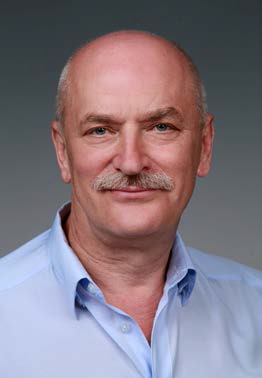Physical Sciences Division
Miroslaw's research is focused on fundamental studies of the formation and stability of ordered microporous materials and related solids and the use of that knowledge to design complex catalysts. To monitor and analyze elementary steps of nucleation and crystal growth of catalytic zeolite materials, he conducts both kinetic experiments with in situ magic angle spinning nuclear magnetic resonance spectroscopy and in situ transmission electron microscopy.
By substituting metal cations into zeolite lattices Miroslaw introduces in a controlled manner new active sites and generate new microporous materials. He synthesizes zeolite-like precursor structures having nanometric length scales that are below the periodic detectability of the framework structure, which are subsequently assembled into mesoporous structures using supramolecular templating approach. New lammelar structures containing dispersed nanoparticles provide enhanced access to the active sites which make these new materials highly useful for catalytic processes carried out in a liquid phase. Further Miroslaw exploits certain structural features of crystalline microporous solids of various length scales in a quest to synthesize materials with unprecedented thermal and hydrothermal stability. In a related area, he is working on stabilizing zeolites used in conversion of bio-derived compounds in a liquid water environment via post-synthetic selective removal of structural defects.

